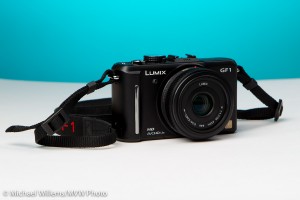A friend just pointed me to the new Canon PowerShot SX30 IS, a newly announced super zoom.
“Why bother with something like a micro four thirds camera?”, he asked. All he needs is the super zoom capability. “It has a 14.1 megapixel sensor; why do I care whether it is micro four thirds or not?”
Well… you know I’ll weigh in on that.
When not using an SLR, I like Micro Four Thirds cameras like my Panasonic Lumix GF-1:
And for some very specific reasons.
- A larger sensor means lower noise. The higher the pixel density (pixels per square mm), the lower the signal-to-noise ratio, and hence, the higher the noise in any given picture. That is why Canon very sensibly went down in Megapixels between the G10 and the G11 (by the way, the G12 was just announced).
- Hence, less ability on small sensor cameras like the Powershot to go to higher ISO settings. I can take good pictures on my full-frame camera at 3200 ISO. Forget even 800 ISO on a typical small frame camera. And that’s physics, so there’s not much to be done about this.
- Inability on small sensor cameras to go to selective depth of field. The aperture as a ratio of the sensor size determines “how blurry I can make the background”. Large sensor = ability to really blur the background. On my micro four thirds Panasonic, which has a sensor almost as large as many SLRs have now, I can create really blurry backgrounds at f/1.7. On a small point and shoot: forget that, even at the lowest “F-number”, your background is still crisp and sharp.
So that is why zoom ability and small size are not everything.

